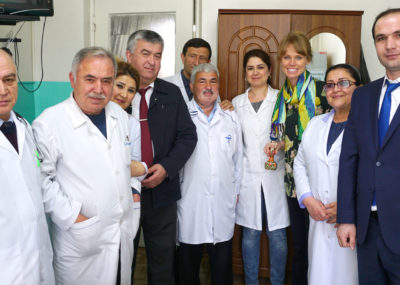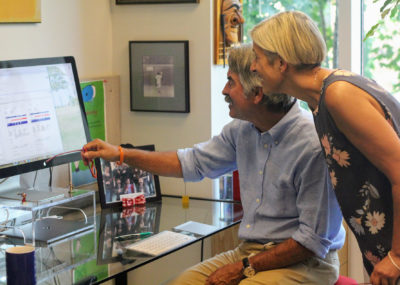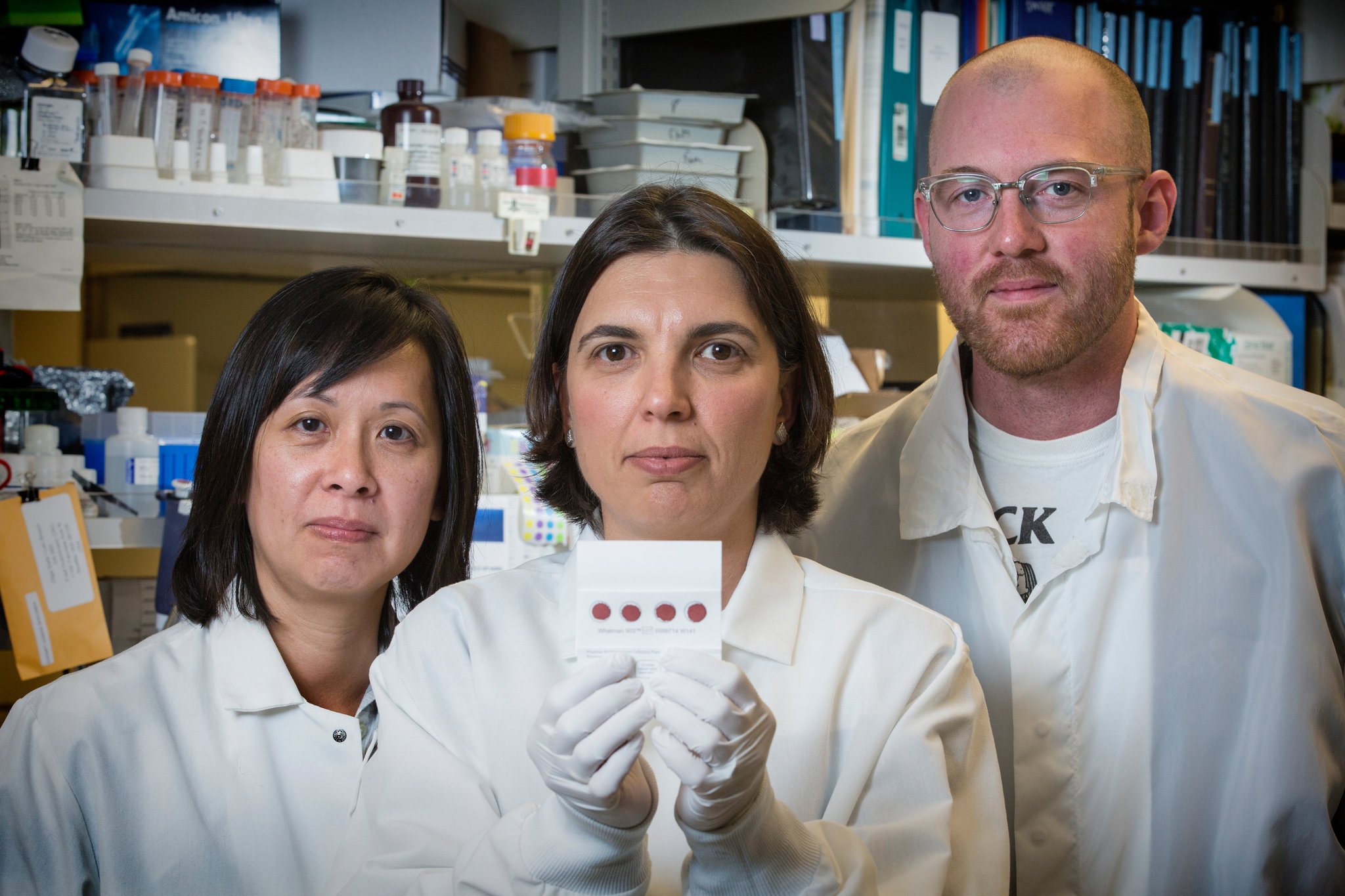Access to accurate diagnostics is a major challenge for many cancer patients in low- and middle-income countries (LMICs). This is especially true for chronic myeloid leukemia (CML) patients. GeneXperts, the machines used to diagnose CML, run $10,000-$70,000 USD, and the cartridges used for each test cost around $50 USD. At these prices, many health facilities in LMICs cannot afford to provide CML diagnostic testing for their patients. And without a definitive diagnosis, CML patients are unable to access lifesaving drug therapies.
The Max Foundation Senior Program Manager, Erin Lindsay Schneider, saw this situation firsthand when she visited the National Medical Center in Dushanbe, Tajikistan in April this year. When she spoke to the doctors there, she learned that diagnostic testing for CML patients isn’t available in Tajikistan. Patients must pay to have their blood hand-delivered to Moscow for testing. This option is out-of-reach for most in a country where 31% of the population lives below the poverty line. Partner physician, Dr. Mirzovali Rahimov, estimates that as many as 200 CML patients in Tajikistan lack access to diagnostic testing and, as a result, go without appropriate drug treatment. This situation isn’t unique to Tajikistan; CML testing capability is limited throughout Central Asia and Central America. Only two countries in sub-Saharan Africa have diagnostic testing for CML.
The Max Foundation and Dr. Jerry Radich of the Fred Hutch Cancer Research Center (Fred Hutch) are now partnering to help tackle this problem and improve CML diagnostics in underserved regions. Dr. Radich has developed a low-cost, paper-based diagnostic testing method for CML. Previously, vials of blood were sent to labs in Europe and the U.S. for testing, which was both costly and unreliable – vials were often damaged in transit. With this new method, a physician spots a patient’s blood onto a test card and sends the card to Dr. Radich’s lab at the Fred Hutch for processing. He and his team are able to perform accurate diagnostic testing on the samples even after weeks of transport. Once patients are diagnosed, The Max Foundation connects them with available treatments free of charge. The free treatment is made possible thanks to The Max Foundation’s partnerships with pharmaceutical companies to provide cancer drugs to patients in need in specified LMICs.

When Erin Lindsay learned that patients in Tajikistan lacked access to diagnostic testing locally, she told Dr. Mirzovali about the diagnostic program, dubbed Spot On CML. Spot On CML prioritizes physicians and patients who otherwise lack access to CML diagnostics, making Tajikistan an ideal candidate for. Dr. Mirzovali eagerly agreed to participate. Over the following weeks, he and Erin Lindsay coordinated shipment of the testing supplies, and Dr. Mirzovali gathered patients to draw blood samples, carefully prepared the test cards and shipped them to Jerry Radich’s lab in Seattle for processing. In July, the first results came in: 14 Tajikistan patients tested positive for Philadelphia chromosome-positive CML and were immediately approved for drug therapy. These patients range in age from 25 to 64.

Demand for the Spot program is quickly growing. Testing in now underway for more patients in Tajikistan, as well as Burkina Faso, Cote d’Ivoire, Niger and Mongolia. The Max Foundation and Dr. Radich aim to test at least 365 patients – on for every day in the year – and connect them with treatment over the next 12 months. Spot On CML is making great strides toward overcoming barriers to diagnostics and better health for CML patients in low and middle-income countries!

